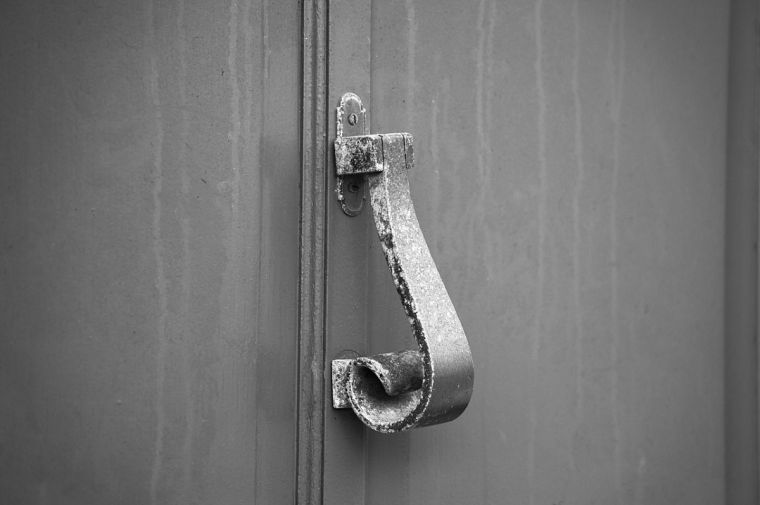Standing at the threshold: Facing the future with prayer, righteousness and repentance
The seventh and final Haftorah of Consolation before Rosh Hashana (Jewish New Year) is Nitzavim (aligned to the Torah reading, Deuteronomy 29: 9-17, 30).
Moses is now 120 years old. He knows he is approaching death and that he will not be entering the Promised Land. He has done all the donkey work, got the Children of Israel into shape, encouraged and cajoled them on their journey of Exodus from Egypt to this pivotal moment – and then, at the last hurdle when he hands the reins of leadership to Joshua, what does he say?

'Today you are standing firm, all of you, before the Lord your G-d.'
Why 'all of you'? Isn't the phrase redundant? But what Moses is telling the Children of Israel is that this is a threshold moment for the entire world. This moment is not just for their own ramshackle body of refugees, exhausted from heat, drought, war, pestilence and betrayal.
Threshold moments are key in life per se and as long as you 'all stand firm', you should be able to see this through.
This Haftorah (Isaiah 61:10 – 63:9) is divided into three sections, depicting the three activities of prayer, tsedaka (justice and mercy) and repentance which characterise the Rosh Hashana period.
The Haftorah starts with the prayer: 'I will rejoice in the Lord, the Transcendent and merciful Being; my soul will exult in my G-d, who dispenses justice.'
For the Children of Israel, prayer is a matter of rejoicing and exultation, but only when justice and mercy are kept always in mind.
'For Zion's sake I will not be silent, and for Jerusalem's sake I will not be still, until her righteousness shall go forth like a bright light and her salvation shall flame like a torch.'
What is the difference between Zion and Jerusalem? Zion refers to the site of the Holy Temple, seat of the Sanhedrin, dispenser of law courts and justice. Zion is therefore the centre of Jerusalem. The term 'Jerusalem' here refers to the entire city whose salvation brings out the merciful aspect of G-d.
When justice and mercy are equally dispensed in this realm, then the Jewish people herself will no longer be called 'Forsaken' and the Land no longer 'Desolate'. The Jewish people will be renamed Hepzibah ('My desire is in her') and the Land will be called Beulah ('settled').
'Perpetual guardians will guard the walls of the city of the Jerusalem day and night, without cease.'
Who are these guardians? Maybe angels. Maybe the people of Jerusalem themselves. Maybe the entire Jewish people whose renewal keeps Jerusalem going – together with the entire world.
The final section deals with teshuvah – repentance – the mainstay of the imminent 10-day Rosh Hashana-Yom Kippur period.
G-d didn't find anyone to help Him in his quest to bring righteousness to the world.
2,000 years ago the Romans brought about the current exile of the Jewish people. But G-d 'looked and there was no helper. I was astonished, but there was no supporter'.
G-d created the world to be a partner with Him in his quest for righteousness, but found that He was on his own. In order to save the world from itself, he had no choice but to destroy before restoring.
Isn't this what repentance is all about? We have spent the year in ways of which, coming up to Rosh Hashana, we are now ashamed. We have to make things right with our nearest and dearest – our families – our friends – our wider groups. We have to heal the rifts within ourselves.
Only then will it be possible for the whole world to be saved – but we must start with ourselves.
But we are not on our own in all this. For although for the last 2,000 years of Exile we have been (according to the first Selichot service, which took place on Saturday night) 'dispersed, slain, slaughtered and butchered; we remained a mere few in number among the piercing thorns of the nations, our eyes were strained to look for relief, while oppressors of Thy people... prosper continually', soon the mockery of the nations will cease.
For, as Isaiah concludes, G-d says of the Jewish people: 'Yet despite all this, they are My people, children who will not be false.' And because of this: G-d 'was a Saviour unto them. In all their troubles, He was troubled. He lifted them and bore them all the days of the world.'
The Haftorah therefore ends with the inspiring words that G-d joins Israel in her Exile, so that the Jews knew that they were never truly abandoned.
G-d was watching. If one corner of Israel's Exile became unbearable (as in our own day), G-d was preparing the way for the next stage in the journey to the Messianic Era of Redemption. G-d always shared in the travails of G-d's people, sometimes hidden but always there.
So as the year 5777 in the Jewish calendar comes to an end and the New Year of 5778 starts on Wednesday night – the birthday of the entire world – let us hope that the year now upon us brings us the salvation we all need and a world based, as G-d wishes, on justice tempered with mercy.
And only we, the 7 billion–plus people of the world, working together with G-d, can make that happen.
Dr Irene Lancaster is a Jewish academic, author and translator who has established university courses on Jewish history, Jewish studies and the Hebrew Bible.











